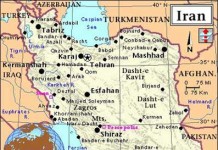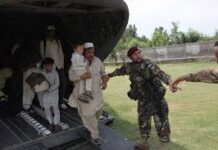Context
 Conflicting reports have emerged recently about Tehreek-e-Taliban Pakistan (TTP) setting up a command and control office in Syria. There could be a number of motives behind the development and to discern these, a closer look at the different extremist and militant groups operating in the AfPak region is needed.
Conflicting reports have emerged recently about Tehreek-e-Taliban Pakistan (TTP) setting up a command and control office in Syria. There could be a number of motives behind the development and to discern these, a closer look at the different extremist and militant groups operating in the AfPak region is needed.
Firstly, the distinction between Afghan Taliban and TTP needs to be understood. Dealing with the complex dynamics of Afghan reconciliation, Afghan Taliban have reiterated their main area of operation has always been Afghanistan. Furthermore, Afghan Taliban have been distancing itself from Al Qaeda (AQ). This was one of the American preconditions for negotiations to move forward in Doha.
On the other hand, TTP and array of other Islamist groups operating in the region have a different agenda. For example, while TTP has remained focused mainly on helping Afghan Taliban and carrying out its operations in Pakistan and against its military, it is generally not perceived to have global objectives and abilities. From time to time, TTP has made statements about targeting the West or linkages with other terror attacks that were conducted, but that appeared mostly to be rhetoric. However, they have worked hand in hand with Al Qaeda and other extremist factions in the region.
Then there are groups like Lashkar-e-Tayiba (LeT) and Lashkar-e-Jhangvi (LeJ) etc., which are believed to have a wider regional agenda, especially as it relates to nations like India and Iran.
The degree of cooperation between these different organizations has always been of great intrigue to the western nations. There is evidence to suggest the different groups have collaborated and cross-pollinated their tactics and strategies. Now that Afghan Taliban has begun to concentrate on the reconciliation process, TTP is feeling the pressure to define its reason d’être.
Analysis
In PoliTact’s previous assessment, we noted that in the future TTP is likely to gravitate more towards AQ and other groups like LeT and LeJ. However, recent reports have suggested differences widening between TTP and some of these groups. There may be a deliberate attempt to implant differences amongst these groups, as their unification is perceived as highly dangerous.
The news regarding TTP setting up an office in Syria has more do with reestablishing its credentials, particularly for the period after NATO withdraws from Afghanistan. By presenting itself as having a wider agenda, TTP may also be pressuring the government of Pakistan to take the group seriously.
On the other hand, Middle East being the core of Islamic faith, opportunity for jihad there is a magnet that none of the Islamist groups can resist. This is the reason PoliTact has consistently maintained that as the situation of the core Arab regions continues to worsen, it will supersede the slow moving dynamics of the AfPak region initially. However, in the second phase, the militants are likely to revert back to the regions of their origins, as the precedence from similar conflicts in the past has shown, with dreadful consequences.
Thus, the news about the movement of militants and jihadists from the AfPak region to Syria is not that farfetched. Especially when it is backed with calls for jihad in Syria from Saudi Arabia’s Grand Mufti Abdul Aziz al-Asheikh and influential Sheikh Qardawi. The development does present a short-term opportunity to divert the attention of the local extremist groups else where, but in the long run, the threat is likely to reverberate.
PoliTact is keeping a keen eye on these developments.



